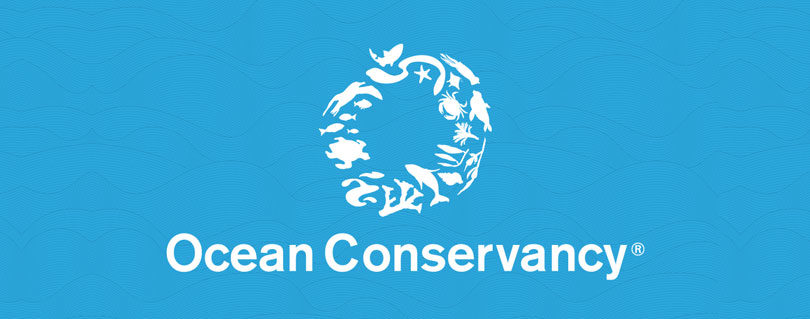Congress’ Ambitious New Plan to Fight Ocean Plastic Pollution
Published by Ocean Conservancy
The new year has brought with it a whirlwind of activity in Congress affecting our ocean. Less than a month ago we applauded the unanimous passage in the Senate of the Save Our Seas 2.0 Act, which specifically targeted ocean plastic pollution. Today, Senator Udall and Representative Lowenthal have introduced another piece of legislation on this issue that is worth celebrating: the Break Free From Plastic Pollution Act.
The bill is broad and ambitious in scope, and will likely evolve significantly as legislators debate it in Congress. For now, though, we see it as a potential turning point in the fight against ocean plastics. Here’s why we think it’s so promising:
The bill targets some of the most prolific and most dangerous types of ocean plastic pollution.


The deadliest form of marine debris, though, is abandoned, lost, or otherwise discarded fishing gear (also known as “ghost gear”)—one reason we were so proud to assume leadership of the Global Ghost Gear Initiative® last year. The bill would direct the National Oceanic and Atmospheric Administration to study and provide recommendations aimed at reducing the impacts of derelict fishing gear—an important signal that the United States is ready to act on this immense, but often overlooked, aspect of the ocean plastics crisis.
The bill would also require the EPA and the National Institute of Health to conduct a study on the environmental impacts of tobacco-related litter, including cigarette butts and plastic electronic cigarettes. This recognizes a reality that any ICC volunteer has seen first-hand: cigarette butts are everywhere. In fact, they are always the number-one most-collected item during each year’s ICC. And because they contain plastic filters, they never go away—leaching toxic chemicals into our ocean for years to come, making them one of the top five deadliest forms of marine debris.
The bill incentivizes and simplifies recycling, which we know is critical to keeping plastics out of our ocean.


The bill includes a number of measures to incentivize and simplify recycling. Among these, it stipulates that plastic beverage containers (and down the line, other plastic, glass and paper products) must be manufactured from an increasing percentage of recycled content. This is important because it would create a market for recycled plastics—something we desperately need here in the United States.
The bill also requires the EPA to develop clear, standardized recycling and composting labels for products, and institutes a nationwide container deposit program with a 10-cent refund requirement for all beverage containers.
All of these measures would incentivize and hopefully improve recycling rates in the United States, currently the largest per capita producer of plastic waste in the world. And remember, our reliance on plastics is so entrenched—from clothing to car parts to computers and more—that no matter how well we do at cutting out single-use plastics, we still need to find ways to properly manage the plastics we do use to ensure they never make their way into the environment.
The bill requires producers, distributors or sellers of plastic products to take responsibility for managing and collecting waste from their products.
This is huge. In October, Ocean Conservancy published the Plastics Policy Playbook, culminating a year of research into the solutions needed to fund effective waste management infrastructure and ensure that every piece of plastic waste is collected in parts of the world most impacted by the plastic pollution crisis. We found that implementing extended producer responsibility measures (or EPR, for short) was the most effective way to help finance the cost of collection, management and proper disposal of plastic waste.
This bill will implement EPR by requiring producers, distributors or sellers of certain single-use products to design, manage, and finance programs to collect and process waste. Simply put, the bill puts the onus on companies rather than on taxpayers to help keep plastics out of our ocean. Everyone has a role to play, and this is one area that companies must pitch in.
As you can see, there’s a lot to like in this new legislation. Now, Ocean Conservancy is ready to fight to keep it strong and bold. Stay tuned here for more news as the bill progresses.
Stay current in ocean news!
Sign up for our emails.
The post Congress’ Ambitious New Plan to Fight Ocean Plastic Pollution appeared first on Ocean Conservancy.
Read the full article at: https://oceanconservancy.org/blog/2020/02/11/congress-ambitious-new-plan-fight-ocean-plastic-pollution/



